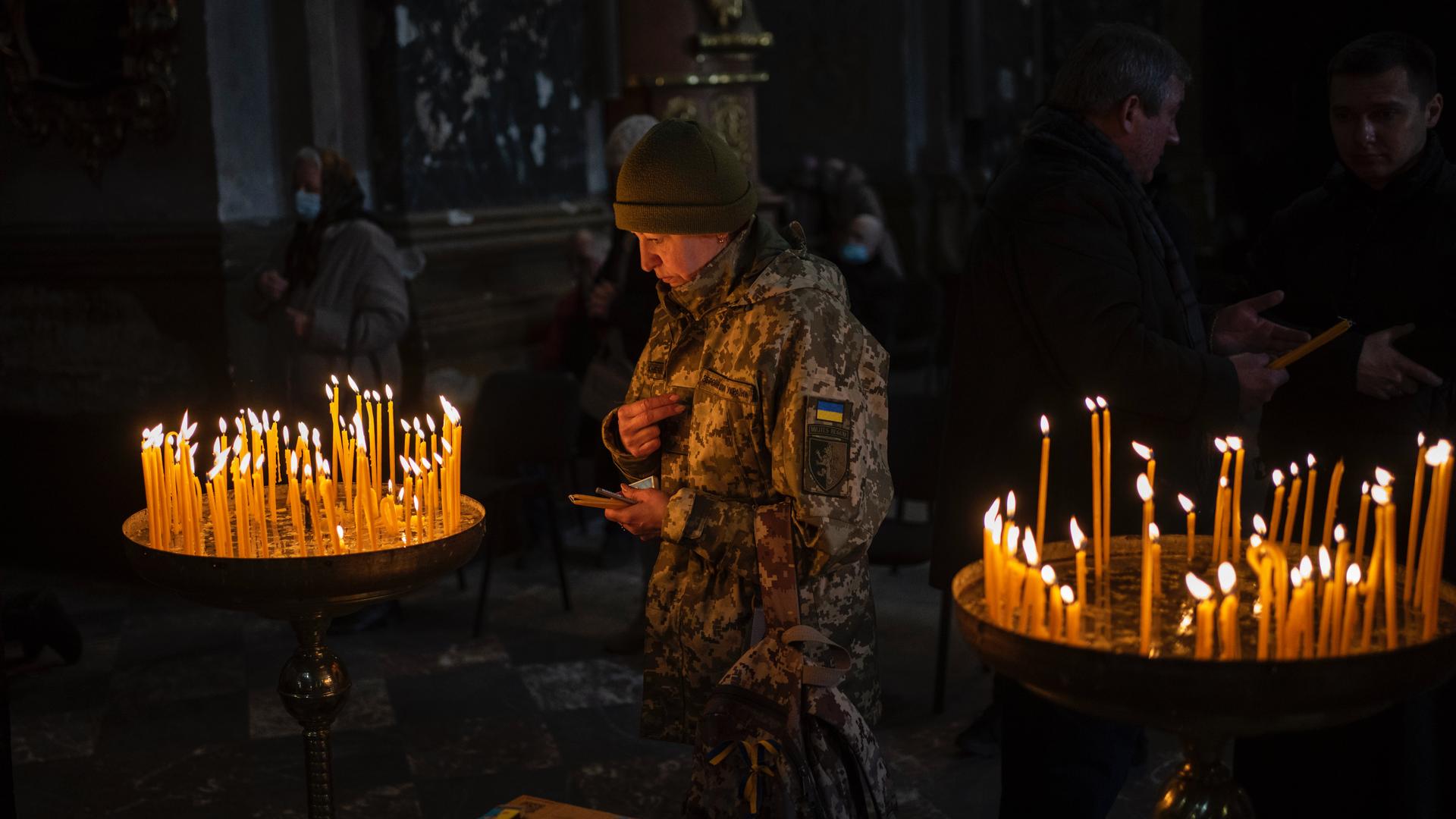At the 17th-century Saints Peter and Paul Garrison Church in Lviv, Ukraine, on Sunday, worshippers lit candles and prayed for the Russian invasion in their country to end.
For many, memories of the 2014 conflict with Russia in the country’s east are still fresh, as evidenced by the photos in the church of fallen soldiers surrounded by salvaged bullet and shell casings, Christian iconography and a giant, wooden cross with an image of Jesus printed onto a Ukrainian flag.
“Only God can help us. We are praying for the safety of Ukraine’s soldiers and civilians, and for the country’s skies to be protected.”
“Only God can help us,” Olena Vitkovytska, 45, said, exiting the church. “We are praying for the safety of Ukraine’s soldiers and civilians, and for the country’s skies to be protected.”
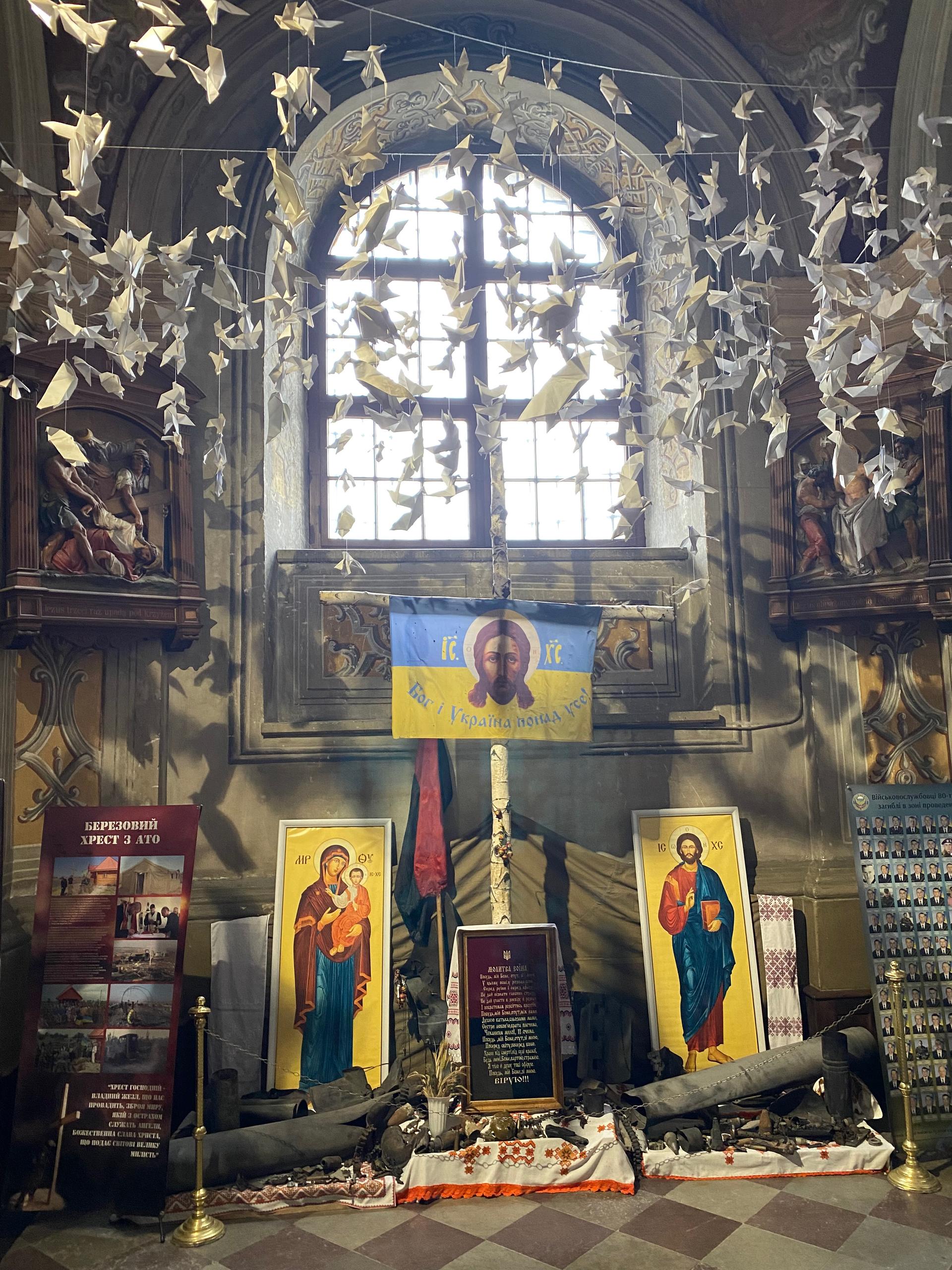
Related: ‘We have compassion for them’: Romania is taking in thousands of Ukrainian refugees
She echoed an almost universal demand here for international forces to impose a no-fly zone over the country.
The western city of Lviv is regarded as one of the safest parts of Ukraine, at least for now. On the first day of the invasion, an airport 80 miles southeast to Lviv was bombed by Russian forces but no fighting has occurred in the city itself.
On Monday, the city’s mayor, Andriy Ivanovych Sadovyi, said Lviv is currently hosting more than 200,000 displaced people, with over 50,000 going through the train station daily, as signs point to a deepening humanitarian crisis.
The city is running out of housing and temperatures are plunging, the mayor said.
Although March 6 marked Forgiveness Sunday, Vitkovytska said that she’s not feeling very forgiving toward Russia.
“We were praying for [forgiveness] for our sins, to bless the country for peace, and for God to give wisdom to Russian troops to end this war, but not to forgive them.”
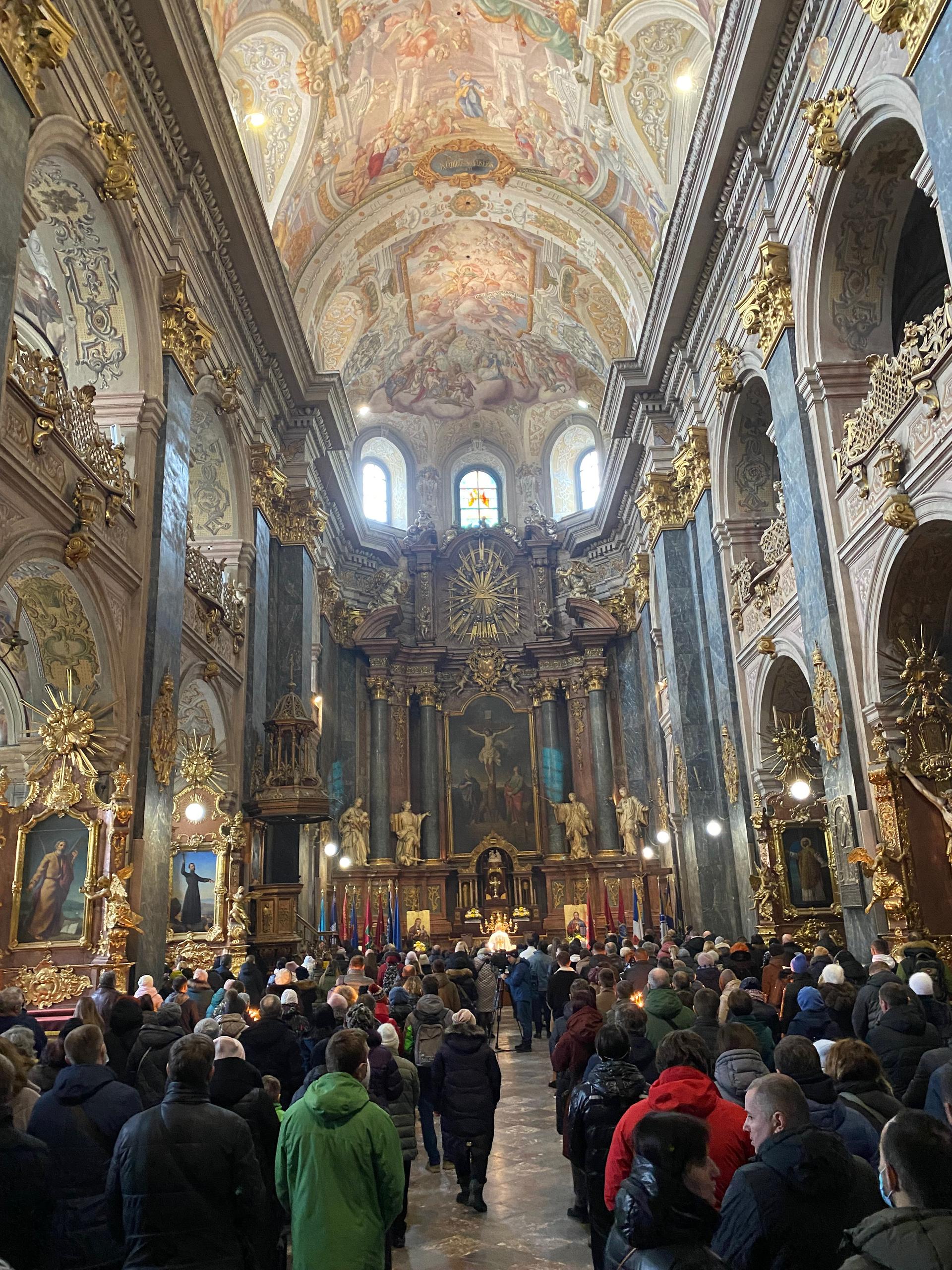
Lviv is a sanctuary — for now — but shocking scenes are playing out elsewhere in the country.
Related: ‘The risk of escalation is too great’ for a no-fly zone in Ukraine, analyst explains
On Sunday in Irpin, a suburb of the Ukrainian capital of Kyiv, a family with two children and several other civilians were killed after Russian forces shelled a checkpoint as they were trying to flee the town.
Ukrainian President Volodymyr Zelenskiy vowed revenge for the attack, saying that Ukraine will neither forgive nor forget.
In Lviv, there’s a major effort to collect supplies to send to the rest of the country, especially the most vulnerable areas. Some Ukrainian civilians are receiving weapons training, on the outskirts of Lviv, while others are keeping their hands busy, or donating blood.
In an office building off a busy downtown street in Lviv on Sunday, Olena Lukina was among a small group of women ripping donated bed sheets and rolling them into bandages to be delivered to wounded troops on the front lines.
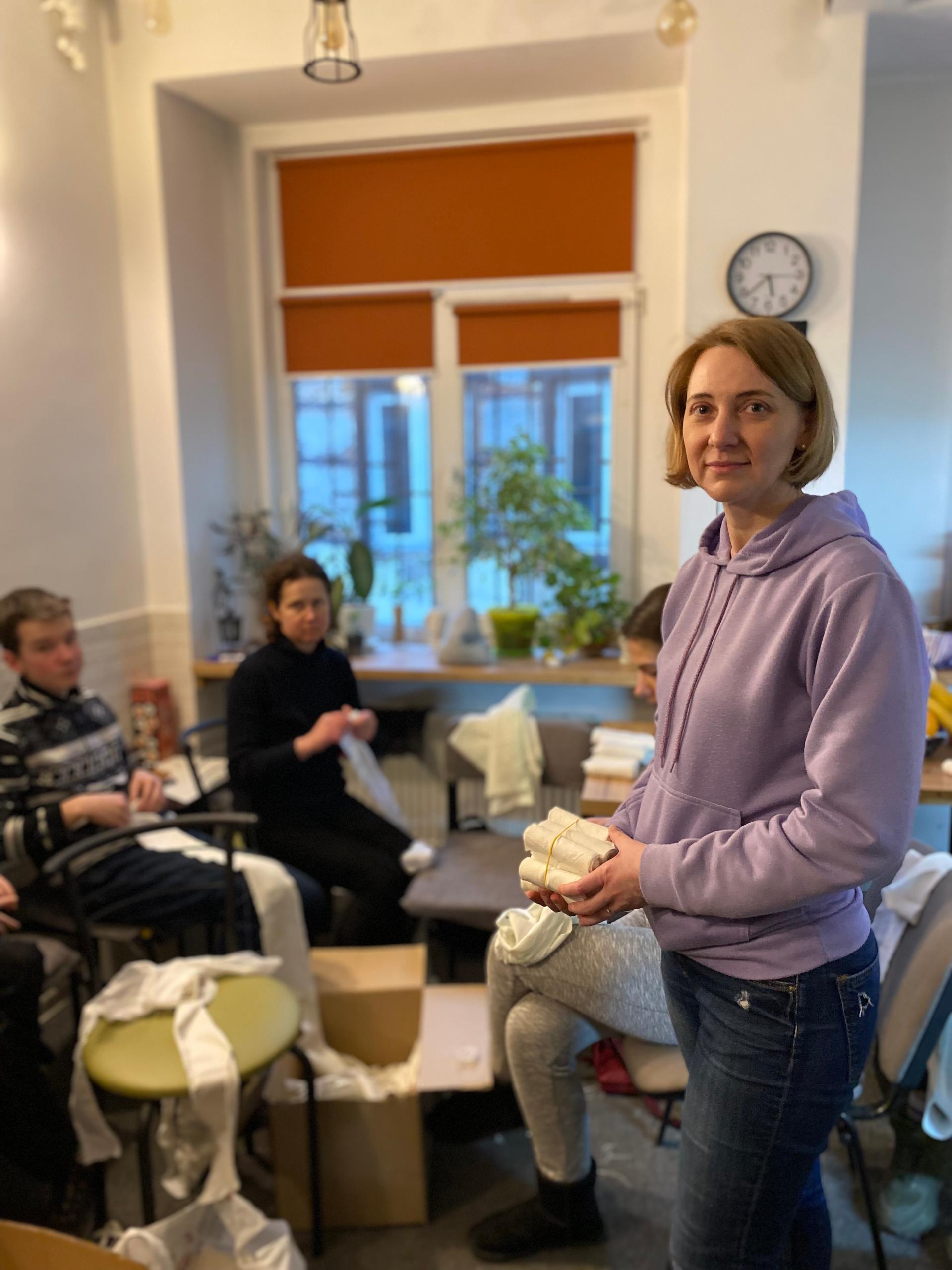
Lukina, 43, a psychology lecturer, said that this simple task is good for bolstering mental health, improving concentration and instilling some much-needed calm. But the anxiety is still there.
When asked if Lviv will stay a free city, she paused.
“It’s a difficult question,” she said, tailing off before adding quietly, “I’m afraid.”
“Everything has changed. Sometimes you feel normal. There are crowds everywhere almost like when we hold the city’s literature festival. But then the air raid sirens, the checkpoints, the curfew and the refugees.”
“Everything has changed. Sometimes, you feel normal,” she said. “There are crowds everywhere almost like when we hold the city’s literature festival. But then the air raid sirens, the checkpoints, the curfew and the refugees.”
Related: Why Zelenskiy’s ‘selfie videos’ are helping Ukraine win the PR war against Russia
On Monday, Karyina Omelchuk and Polina Volodina, who sat in a restaurant on the other side of town, are among the group of refugees coming into the city from other parts of the country.
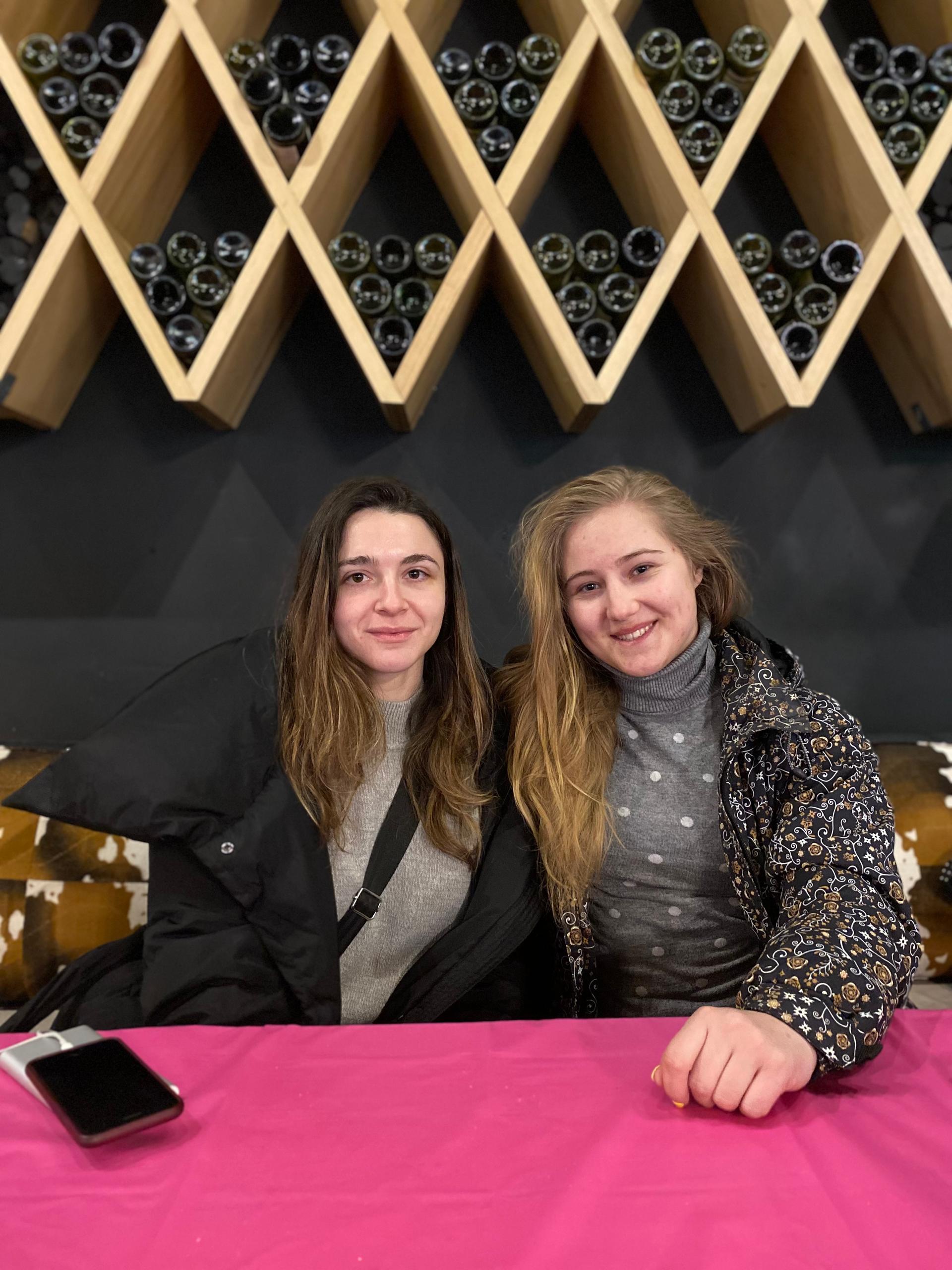
Volodina, 25, from the southern city of Melitopol, played videos on her phone showing locals standing in front of a Russian military convoy whose soldiers fire guns in the air.
Volodina said that her parents back in Kharkiv are afraid. “They think the same thing will happen here as back home and I can’t explain to them that it’s quiet here because they don’t know what is quiet,” she said. “I can tell them about the quiet, the good food, the light and the warmth, but they don’t know these words now.”
Omelchuk and Volodina are staying in a hostel provided by a local volunteer group. It’s basic, but a significant improvement from the metro station in Kharkiv where Omelchuk spent seven days and seven nights.
Omelchuk, 27, who worked as a circus artist in Kharkiv, has had to uproot her life before — she’s originally from Crimea, the peninsula annexed by Moscow in 2014.
Now, she and her mother, who was traveling with her, are moving again.
“Tomorrow, we will try to get the train to Poland. After that, we don’t know. We hope the war will be over very soon so we can return to our independent country.”
Omelchuk is leaving her boyfriend behind in Ukraine due to the mass mobilization of fighting-age men.
Volodina, who is staying in Lviv, said that she’s tired but she will assist the relief effort however she can — she will even donate blood.
“It’s just whatever we can do. I can work with children, and I have a lot of blood [to give],” she said.
Our coverage reaches millions each week, but only a small fraction of listeners contribute to sustain our program. We still need 224 more people to donate $100 or $10/monthly to unlock our $67,000 match. Will you help us get there today?
